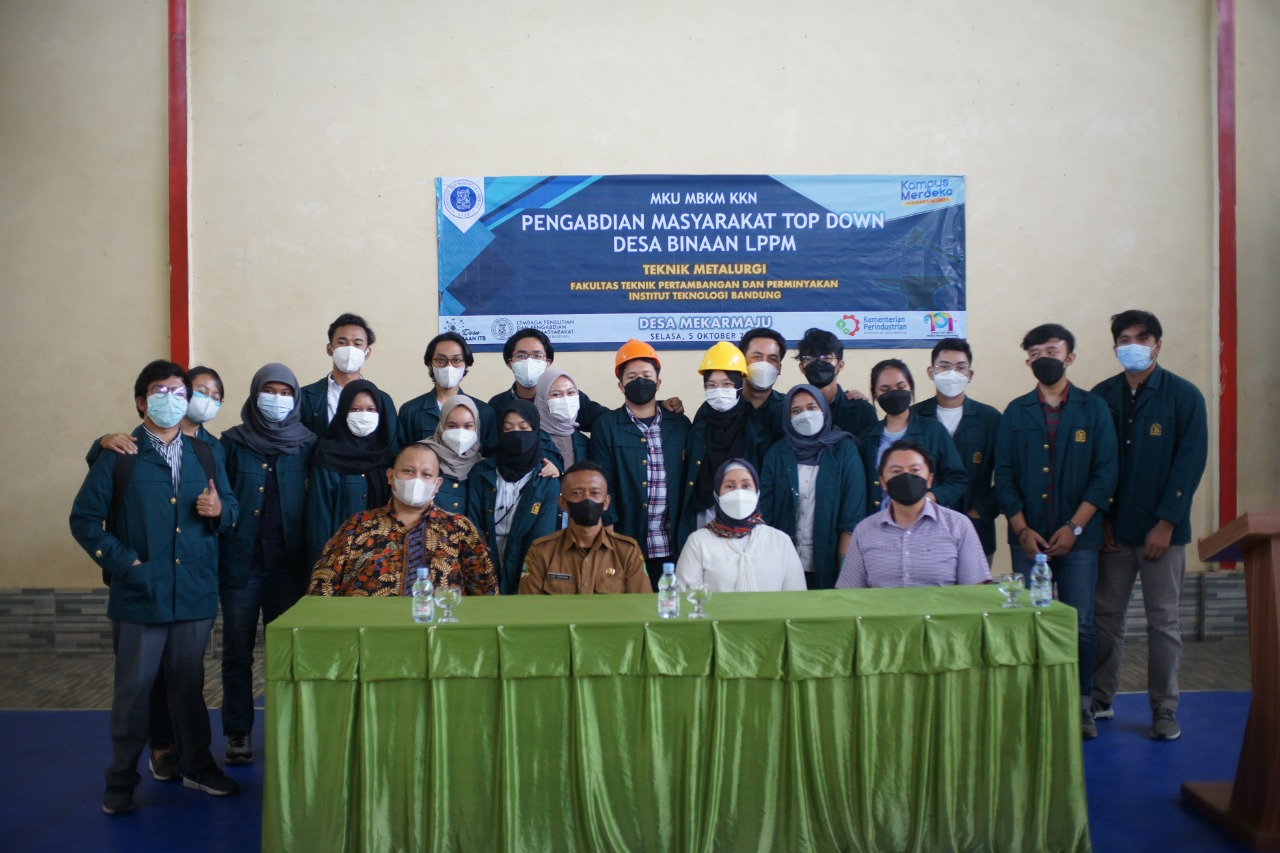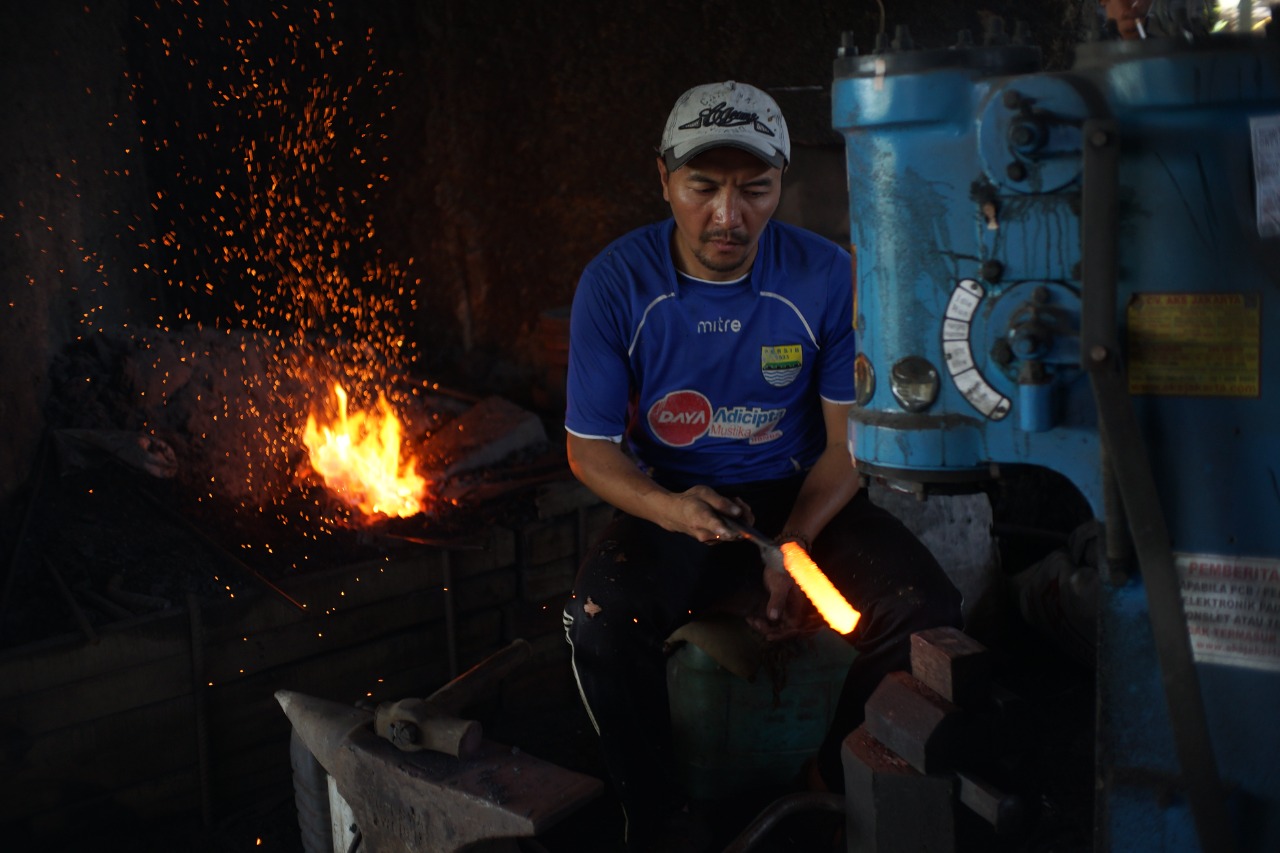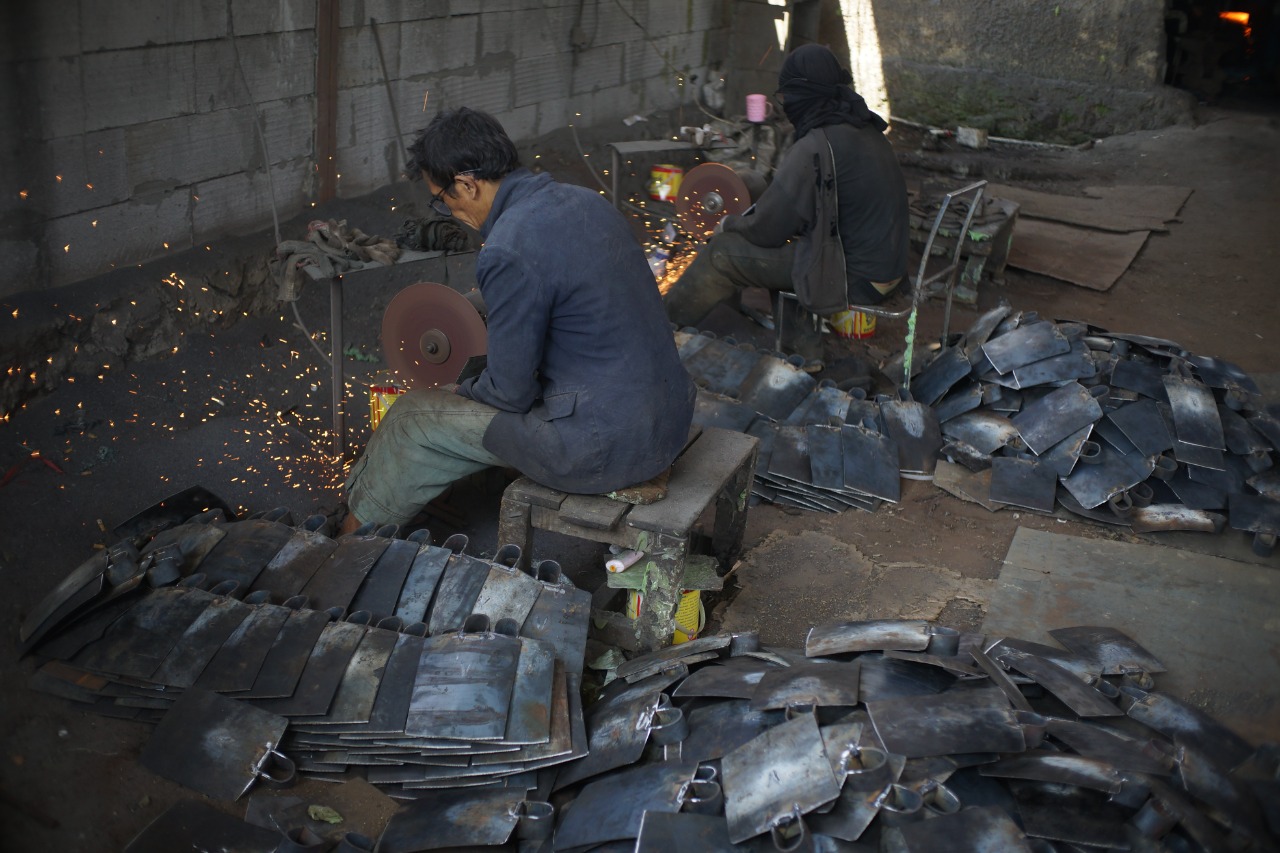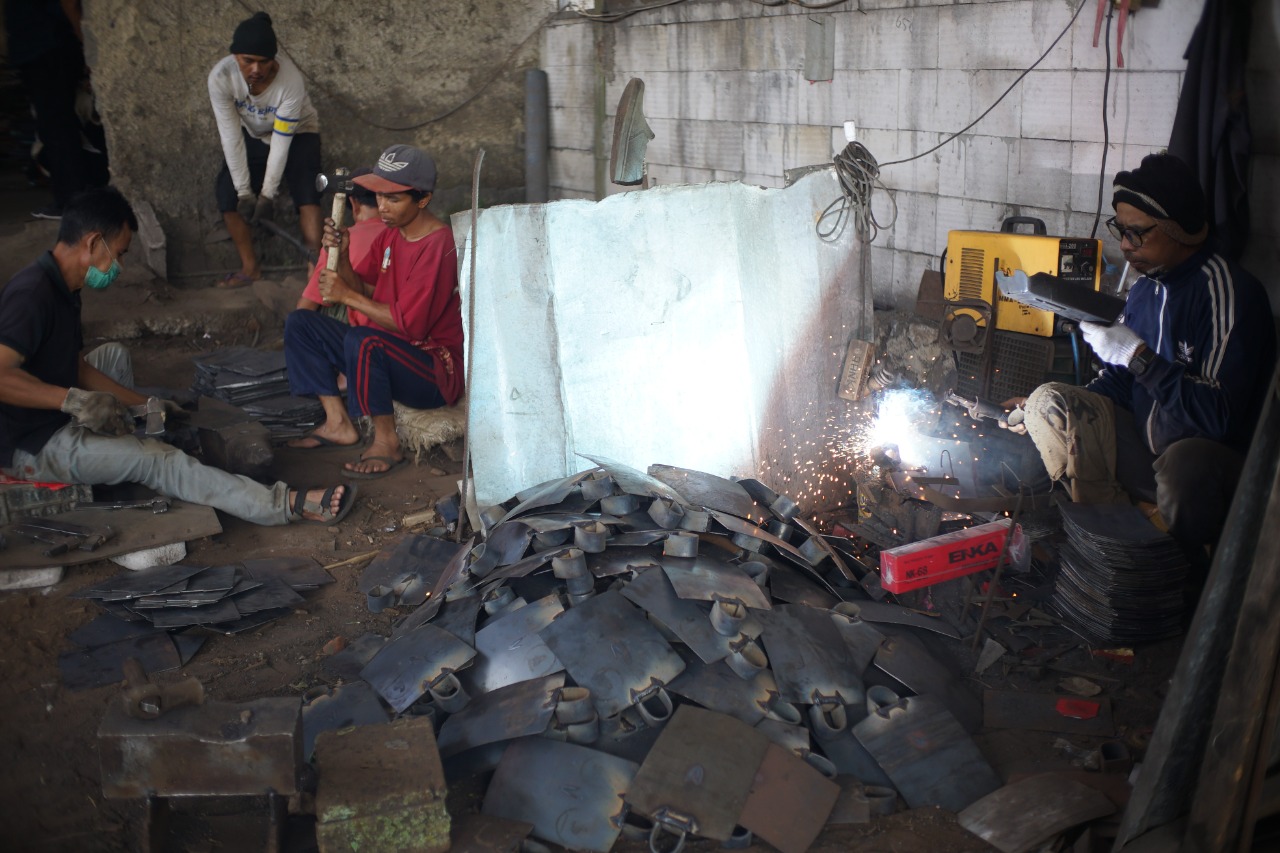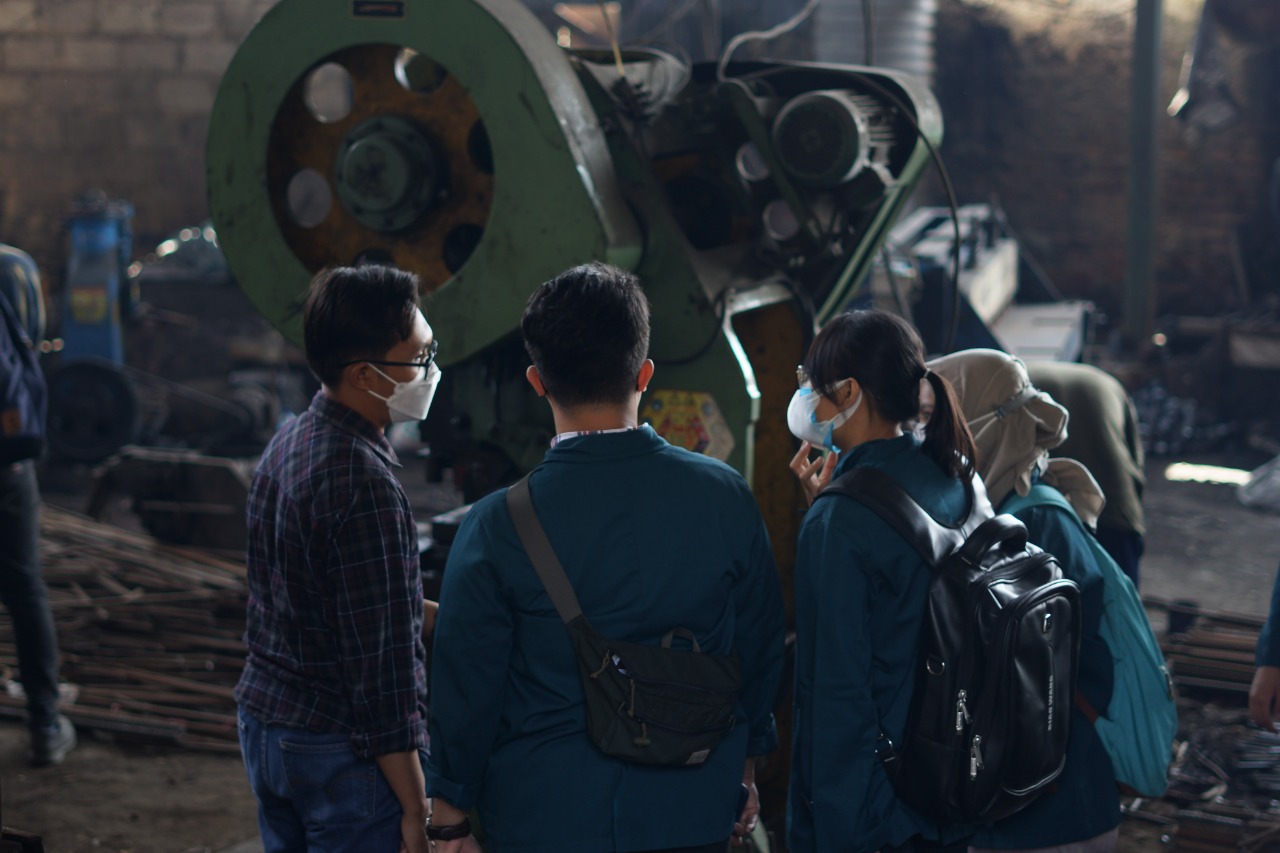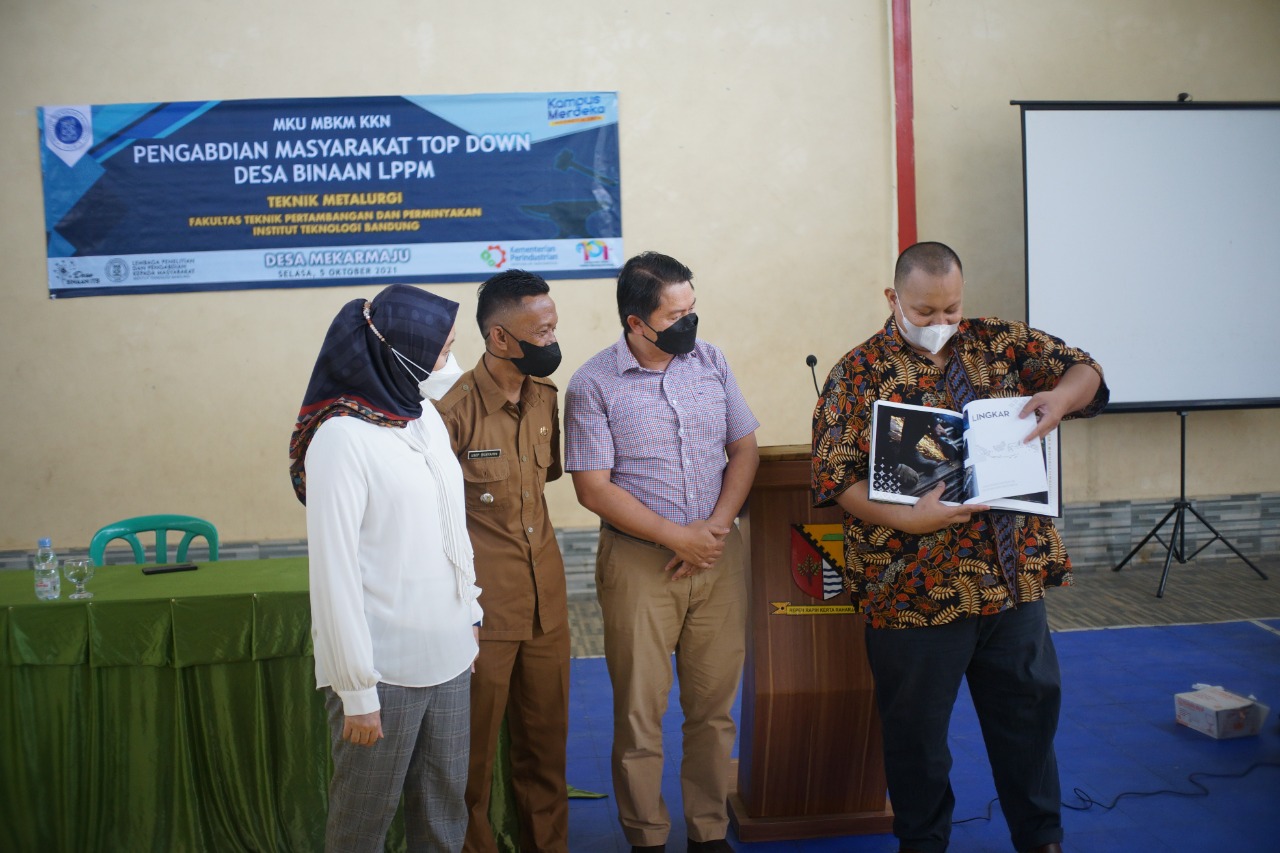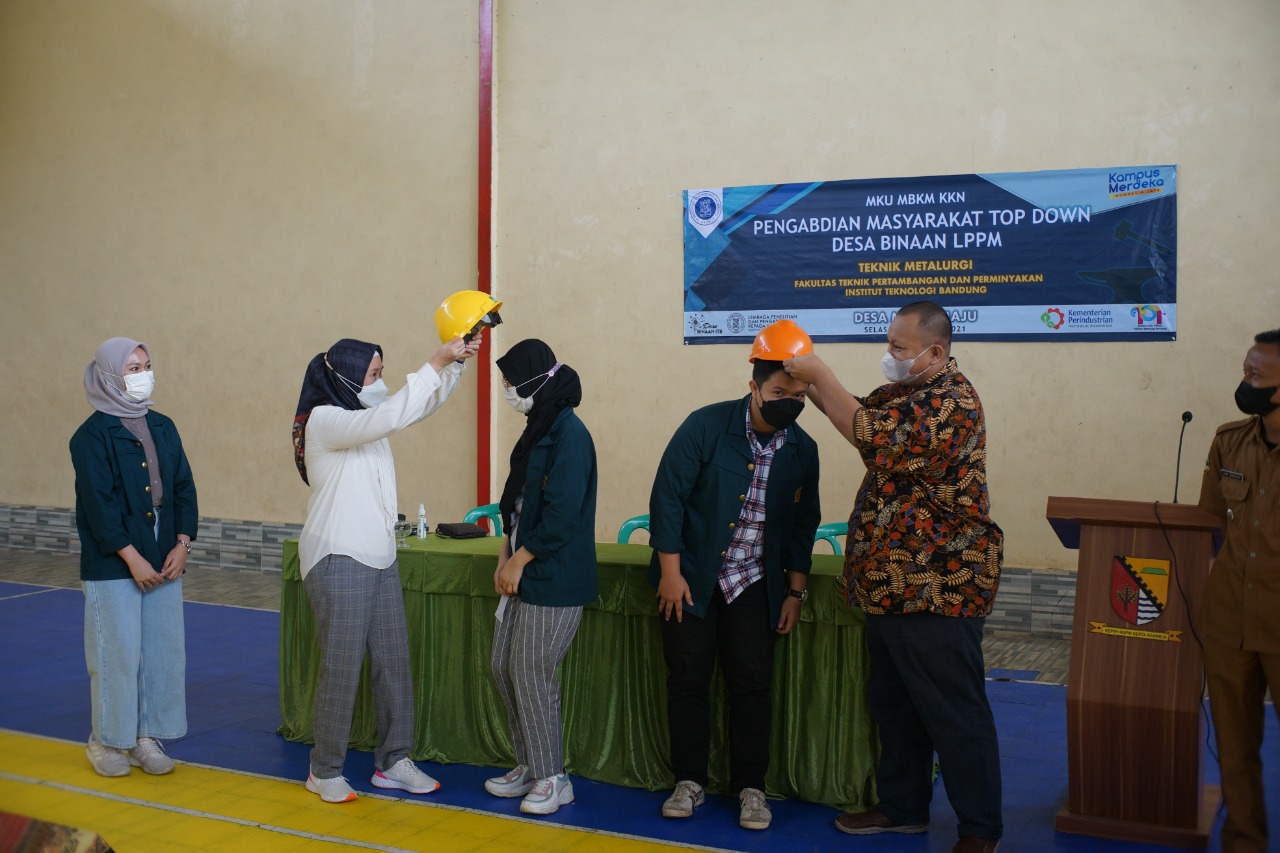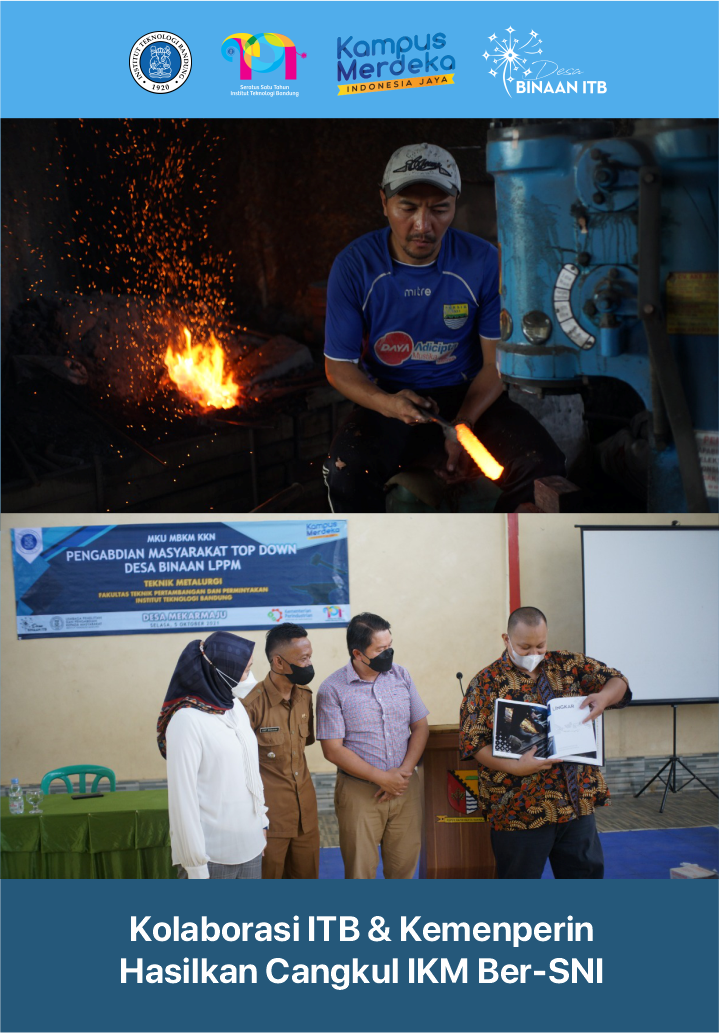

BANDUNG, October 5, 2021
The collaboration between the Bandung Institute of Technology (ITB) and the Ministry of Industry in empowering the craftsmen of the Blacksmith Village in Mekarmaju Village, Pasirjambu District, Kab. Bandung produces small and medium industrial production hoes that have the Indonesian National Standard (SNI). By having SNI, this agricultural tool product is expected to be able to answer the issue of the availability of tools from within the country and penetrate the wider market.
The development of the crafter's capacity and improvement of the quality of tooling products has been mainly under the umbrella of the LPPM ITB community service program since 2015. Together with the Ministry of Industry, this blacksmith village later became a pilot project for small and medium-sized businesses that produce tools so as to produce SNI for tool craft centers that produce tools. first in Indonesia.
ITB scientist from the Metallurgical Engineering Expertise Group, Faculty of Mining and Petroleum Engineering, Dr. Eng Akhmad Adian Korda stated that ITB contributed from aligning SNI to helping craftsmen improve product quality to meet SNI requirements. "We help in terms of making and repairing several amendments (SNI). In addition, the Ministry of Industry has also asked for our help in checking the existing hoes and other tools," said Dr Korda in Mekarmukti Village, Kab. Bandung, Wednesday (6/7/2021).
Dr. Korda explained that the SNI contained requirements not only related to the dimensions of agricultural equipment, but also quality requirements related to two things, namely the chemical composition of the steel used and the mechanical properties of the hoe.
"Well, this is what we enter because technologically the hoeing here is done simply. They need to know the treatment so that the mechanical properties are achieved with the chemical composition that we require. So, we develop from that side, from scientific methodology we use it to provide knowledge to IKM here on how to make hoes according to the quality requirements requested by SNI, "said Dr. Korda.
Director of Small and Medium Industries of Metals, Machinery, Electronics and Transportation Equipment, Dini Hanggandari, stated that his party continues to strive for empowerment in IKM centers to have high competitiveness. "The process is gradual and the Ministry of Industry cannot run alone, we must partner, one of which is with ITB," he said while reviewing craftsmen in Mekarmukti Village and inaugurating the MBKM ITB program with the Secretary of LPPM for Community Service, Deny Willy Junaidy Ph.D., accompanied by Dr. . Korda and local village officials.
Dini stated that the collaboration with ITB is an important part in increasing the capacity of craftsmen and the quality of their products. "With ITB, especially metallurgical science, processing can be assisted, starting from the material content, temperature, processing, to achieve the level of hardness according to the desired standard," he said.
By having SNI, Dini stated, the opportunities for IKM center products to penetrate the market are increasingly open. “Yesterday we imported a lot of hoes and we also don't want it to be like that because our industry already exists. However, we must meet the standards. To meet these standards, we carry out various programs, ranging from training to providing tools, in addition to opening up online and offline markets,” he said.
Consistency
Secretary for Community Service LPPM ITB, Deny Willy Junaidy, Ph.D. stated that program consistency is an important consideration in determining program targets. “We initially focused on training for a few years. Mr. Korda trains on the processing of raw materials, so that the levels are stable and the quality is good.”
The success of Mekarmukti Village as an IKM center in producing SNI-compliant products is recognized by Deny Willy, Ph.D. more than the target community service program. "After several years it was deemed appropriate to make a hoe and include SNI, this is an outcome that is beyond the initial target of coaching," he said.
Furthermore, Deny Willy, Ph.D., explained that in every LPPM ITB community service program, the expected impact is primarily to increase welfare and build community independence through the application of appropriate science and technology.
“One of the programs implemented is a top down program. In this program, lecturers who have a track record and high flight hours are assigned. Selection is done in terms of consistency at a certain point in order to build continuity. We choose those who have the same topic to be consistent. This is what also underlies the community service program for the assisted villages," he said.*
